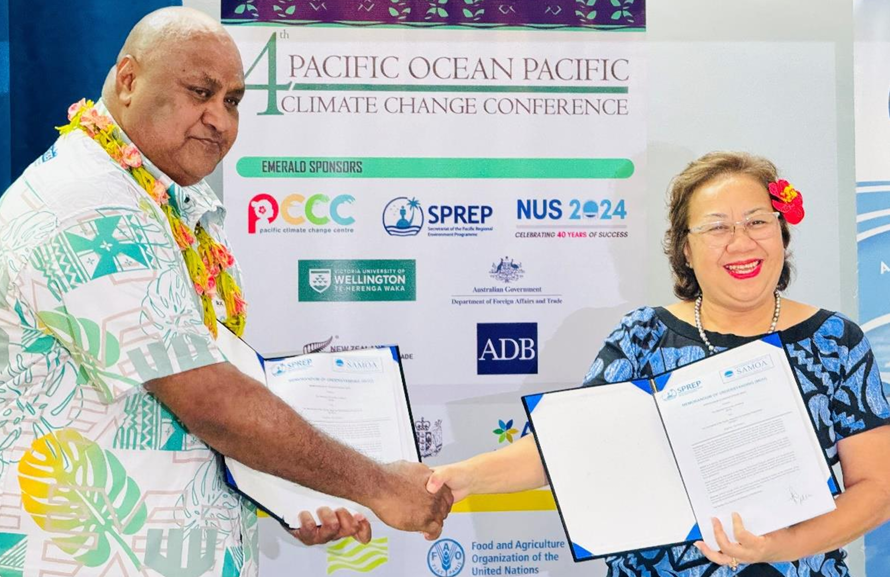Apia, Samoa – Wednesday, 29th May 2024.
The National University of Samoa (NUS) and the Secretariat of the Pacific Regional Environment Programme (SPREP) have strengthened their cooperation to fight climate change, protect the environment, and promote sustainable development in the Pacific region.
A Memorandum of Understanding (MOU) was signed between the two organizations during the closing ceremony of the 4th Pacific Ocean Pacific Climate Change Conference (POPCCC) on 23rd May 2024.
The MOU, signed by Professor Tuifuisa’a Patila Amosa, Vice-Chancellor & President of NUS, and Mr. Sefanaia Nawadra, Director General of SPREP, aims to promote cooperation in areas such as climate change, biodiversity conservation, waste management, and natural resource management. It also focuses on capacity-building initiatives and environmental heritage research.
“We appreciate the opportunity to collaborate with SPREP and the Pacific Climate Change Centre (PCCC) to tackle pressing environmental challenges,” said Professor Tuifuisa’a. “This partnership leverages our strengths to drive meaningful environmental change, benefiting our communities and ensuring a sustainable future for our region.”
SPREP, a regional intergovernmental organization with 26 members, including 21 Pacific Island Countries and Territories and five developed countries, promotes cooperation to protect and improve the Pacific environment for sustainable development. This year marks SPREP’s 31st anniversary.
At the signing ceremony, Mr. Nawadra congratulated NUS for its role in co-hosting the 4th POPCCC. “The conference has been a great platform for sharing innovative solutions and research to address climate change issues in the region,” he said. “We look forward to continuing our work with NUS to better serve Pacific communities and work towards a resilient Pacific environment.”
The NUS/SPREP partnership includes regular meetings to discuss cooperation areas, develop joint work plans, exchange information, and provide training and capacity-building initiatives guided by environmental, health, and safety laws.
This partnership marks a step forward in strengthening climate change and environmental cooperation in the Pacific region, with positive impacts anticipated for the communities.






